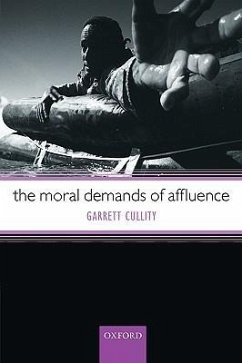
Epistemic Risk and the Demands of Rationality
Versandkostenfrei!
Versandfertig in über 4 Wochen
98,99 €
inkl. MwSt.
Weitere Ausgaben:

PAYBACK Punkte
49 °P sammeln!
How much does rationality constrain what we should believe on the basis of our evidence? Richard Pettigrew provides a novel philosophical argument for permissivism about epistemic rationality, and explores a variety of applications, including a discussion of conspiracy theories and the morality of imposing your attitudes to risk on others.













